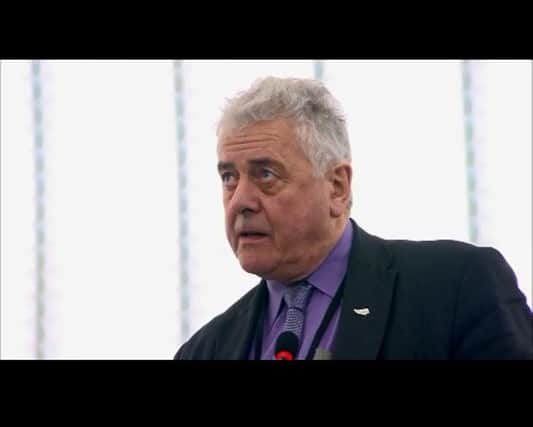Call for '˜free and frictionless trade


The MEP made the comments following a statement by the European Dairy Association (EDA) which highlighted the European dairy sector’s concerns about the potential impact a ‘no-deal’ scenario could have on integrated dairy supply chains and the sector as a whole once the UK leaves the European Union.
Commenting Mr Nicholson said: “The EDA has once again highlighted the need for trade in milk and milk products between the UK and the European Union to continue to be frictionless once the UK exits the EU.
Advertisement
Advertisement
“Earlier this year the EDA and Dairy UK published the ‘Future EU-UK Dairy Framework’. The document showed that in 2016, the UK exported 619,392 tonnes of milk and cream to the European Union and imported 144,174 tonnes from the rest of the EU. In the same year 466,091 tonnes of cheeses and curds were imported into the UK from the EU27 with 125,558 tonnes flowing in the opposite direction.
“In terms of the UK’s post-Brexit trading relationship with the EU a no-deal scenario – where the UK and EU trade on WTO terms – would mean tariffs, quotas, extra paperwork and delays caused by additional inspections. This is a scenario no industry would wish to see become a reality - least of all the dairy sector.
“In terms of the dairy sector the EDA and Dairy UK have estimated that under a no-deal scenario and assuming that trade continued at 2016 levels, UK importers would be required to pay more than 1.7billion euros in duties to import EU dairy products, whilst EU27 importers would have to pay in excess of 600milllion euros in tariffs to continue importing from the EU. Given the integrated nature of dairy supply chains trading on WTO terms would be disastrous for the dairy sector.”
Commenting on trade specific to Northern Ireland, Mr Nicholson continued: “Cross-border supply chains are of course an important feature of the dairy sector locally, in 2015 for example approximately 26% of raw milk produced in Northern Ireland was transported to the Republic of Ireland for processing. Maintaining this frictionless cross-border trade beyond Brexit is important but must not come at the expense of trade with Northern Ireland’s largest trading partner, the rest of the UK.”
Advertisement
Advertisement
Mr Nicholson concluded: “A no-deal scenario post-Brexit would disrupt EU-wide supply chains and trade flows in agri-food and a host of other key industries such as the aerospace and automotive industries. This disruption to the movement of goods would have an impact on UK businesses, workers and consumers but crucially would also have an impact on EU businesses, workers and consumers.
“It is therefore clearly in the best interests of both the UK and the EU27 that a deal is agreed that maintains free and frictionless trade in goods post-Brexit.”